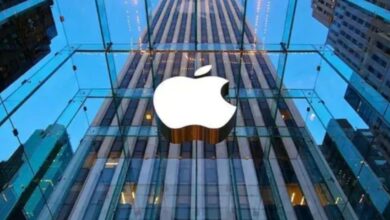Unleashing the metaverse and generative AI for a better brand experience

From the moment of its delivery, Zuckerberg’s grand vision for the metaverse; a single, shared, immersive, 3D space where physical and virtual realities collide, dominated the tech narrative. That was until, of course, the arrival of the latest breakthrough in generative AI – OpenAI’s ChatGPT – bringing with it a near human-like ability to generate text, speech, code and even poetry. Now, as we approach mid-2024, the focus has shifted from curiosity to strategic implementation. Businesses are proactively exploring how these cutting-edge technologies can be effectively utilized in marketing to maximize return on investment (ROI).
VP of Marketing at Storyblok,
Two and a half years on since Meta’s reveal and the narrative has certainly subsided. But that’s not to say that it’s time to say ‘RIP metaverse’. Far from it. Even against a backdrop of Meta’s layoffs, tech giants such as Apple, Microsoft and Google continue to gain speed in the race to coin the ‘next iteration of the web.’ Meanwhile, Nike now sells virtual trainers, H&M has a virtual showroom, and Coca-Cola has landed in Decentraland. Moreover, Apple’s recent Vision Pro launch is set to catalyze the transition to the metaverse, creating a more inclusive, engaging, and empowering virtual environment for users worldwide.
For busy marketing teams, of course, this raises all types of questions. Principally, what does it mean for my brand, and how can we become part of it?
To answer the first question, the good news is the metaverse will bring with it – quite literally – a whole new world of opportunity, especially when it comes to the marketing category.
Take, for example, the digital customer experience. More than ever, consumers are increasingly seeking immersive, meaningful brand experiences that go beyond traditional marketing methods to captivate their attention and forge deeper connections with brands.
Imagine then, the potential that the metaverse affords brands to blend augmented and virtual reality with a level of interactivity that has never been seen before. From virtual showrooms and live product demos to interactive brand events, its potential for creating immersive marketing experiences is vast. For example, with the metaverse it becomes possible for consumers to visit their favorite retailer, get real-time inspiration depending on their requirement (be it a special occasion, a holiday), and make a purchase after virtually trying on a new look. Equally, automotive companies are now offering virtual test drives, allowing customers to experience a car’s features in a controlled, yet remarkably realistic, digital world. This opens up new opportunities for brands to expand their reach to anyone with an internet connection, tapping into global markets in ways that were previously unimaginable.
Gen AI: the next frontier in brand engagement
Of course though, that’s not to say that the metaverse is the only major tech game in town. Ever since OpenAI’s watershed arrival, generative AI continues to shake up the marketing sector like never before. On a basic level, what’s great is generative AI can provide tremendous support in terms of taking on the regular and routine marketing functions, freeing up human resources for more strategic tasks, and improving overall efficiency. But its use goes much further. As we all know, in this age of the digital-first consumer, it has never been more important for brands to create content which is unique, customer-centric, personal and relevant. AI can help here too. For example, AI-driven platforms can now create personalized email marketing messages that resonate with individual preferences and behaviors, significantly increasing conversion rates. The role of generative AI in enhancing customer experiences is also unmatched. AI chatbots, for instance, have become more sophisticated, capable of handling complex customer inquiries with ease and accuracy. This not only improves the customer service experience but also supports greater efficiencies.
Unleashing both for next level marketing
The combination of the metaverse and generative AI presents brand new opportunities for marketing strategies. For example, a company can use generative AI to create dynamic and personalized content within a metaverse, such as custom avatars or unique, on-the-spot generated promotional events that engage users in real-time. Furthermore, these technologies are redefining the concept of customer journeys by creating continuous, engaging narratives that guide the consumer through a seamless transition between virtual and real worlds. Brands that understand how to navigate and integrate these technologies are setting new standards in marketing, providing experiences that are not only engaging but also deeply integrated with users’ lifestyles.
Challenges and strategic considerations
While the potential is immense, the integration of metaverse and generative AI technologies into marketing strategies is not without its challenges. Issues such as data privacy, the digital divide and the need for substantial infrastructure investment are significant. Companies must navigate these challenges carefully to build trust and ensure a secure environment for their users.
Strategically, businesses must decide whether to invest in one or both technologies based on their specific marketing goals and the needs of their target audience. The decision should align with the company’s overall digital transformation strategy and its readiness to adopt new technologies.
Primed for growth
Technology, a digitally empowered customer and changing market dynamics continue to challenge the traditional marketing model and compel the case for greater innovation, immersion, personalization and differentiation. By leveraging the exciting new possibilities afforded by the metaverse and generative AI, marketers can ensure they not only meet but exceed expectations and remain primed to attract, inspire, entice and ultimately convert.
We’ve featured the best productivity tool.
This article was produced as part of TechRadarPro’s Expert Insights channel where we feature the best and brightest minds in the technology industry today. The views expressed here are those of the author and are not necessarily those of TechRadarPro or Future plc. If you are interested in contributing find out more here: https://www.techradar.com/news/submit-your-story-to-techradar-pro



